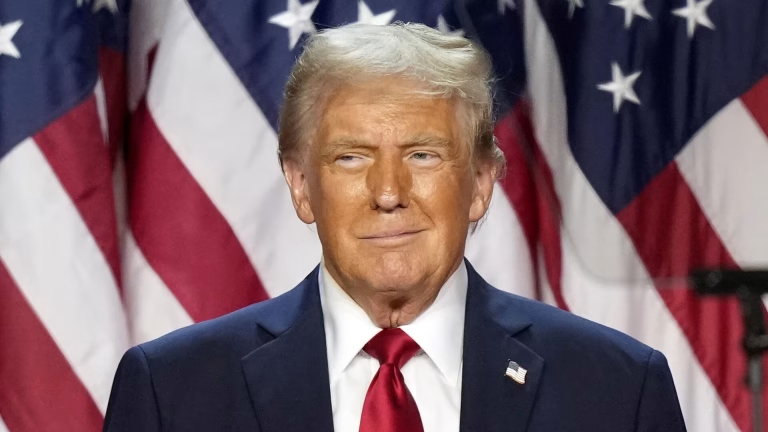
Farms, pills, and Taiwanese bargaining: internal wars in the White House
Donald Trump’s declared war on Big Pharma and his attempt to save American farmers have resulted in a systemic crisis. The populist deal with Pfizer on targeted price reductions failed to solve the problem of high drug prices, while trade wars deprived farmers of a key market in China. Against this backdrop, the government shutdown and the scandal surrounding the Epstein case have undermined the administration’s ability to respond to growing internal problems.
Trump’s war with Big Pharma
The outcome of Donald Trump’s trade war for cheap and “useful” drugs is uncertain. Earlier, the White House announced a deal with pharmaceutical giant Pfizer, which promised to lower the prices of some of its drugs by 40-80%. In addition, Pfizer will abandon its current practice of selling drugs in the US at significantly higher prices than abroad. Americans spend $600-700 billion on drugs annually, and their cost on the US domestic market is two to three times higher than drug prices in Europe. This is influenced by a confusing health insurance system, which has been unable to reform for 15 years. Because of this, it is very easy for Big Pharma to make shady deals with health insurers and set sky-high prices for drugs. And it is ordinary Americans, who suffer from such “friendly agreements,” who are deprived of access to modern medicine amid rising health insurance costs and a high percentage of refusals to perform procedures due to their excessive cost.
At the same time, a wave of patent fraud is gaining momentum, especially for older drugs. Companies are buying them up en masse in order to then inflate prices by thousands of percent. As a result, an inexpensive drug created about a century ago with a cost price of $1 is now being sold at 200-300 times that price. Thus, Trump’s declared war on “Big Pharma” has solid grounds, far from the usual populism or conspiracy theories of Robert Kennedy Jr.
The problem is that it is unrealistic to reduce the cost of all drugs, and the tariffs proposed by Trump will only exacerbate the situation. After all, 70-80% of generics in the US come from China and India. At the same time, Pfizer, for example, avoided the tariff blow by agreeing to reduce prices for only some drugs. It is unlikely that more can be achieved under the current conditions. Moreover, the US healthcare system is so dysfunctional that it is almost impossible to reform. However, Trump is unlikely to be able to explain this clearly to the public, and as a result, he will have to take responsibility for all the negative consequences.
The cost of the trade war for the core electorate
This is already gradually happening, and against the backdrop of the growing crisis in the US agricultural industry, the Trump administration is wondering how to save American farmers, who are the core electorate of Trump supporters. In recent years alone, 140,000 farmers in America have gone bankrupt, with an unimaginable 55% increase in bankruptcies. Farm losses due to rising prices for equipment and fertilizers have reached a record $30 billion, and now the effects of Trump’s trade wars are beginning to be felt acutely. In 2024, China purchased $13 billion worth of soybeans from the US, but since May 2025, purchases have completely stopped. Now, soybeans from Brazil are entering the Chinese market, replacing American soybeans, and Argentine soybeans will soon join the Brazilian ones.

It was very humiliating for the US that it had just granted a $20 billion loan to Buenos Aires to support Milei, and he immediately betrayed Trump by agreeing with China to supply Argentinian soybeans. American farmers are being offered an urgent $10 billion bailout to save them from ruin, but this is unlikely to cover all the losses incurred by farms. New markets and cheap fertilizers need to be found somewhere, because after 2022, fertilizer imports from Russia fell under sanctions, which led to a two- to three-fold increase in prices on the US market. Disgruntled farmers in the Midwest, America’s agricultural heartland, could have caused Trump a lot of problems in the upcoming congressional elections, so Trump’s supporters had to act quickly, sacrificing foreign policy for the sake of domestic policy. That is why it was clear that the White House would literally beg China to resume soybean purchases, and the only question is what concessions will have to be made for this and whether they will touch on such a sore point as Taiwan.
Against this backdrop, Trump continues to be haunted by the Epstein scandal, which is exacerbating the government crisis and shutdown. The Democrats, together with some MAGA Republicans, secured the necessary number of votes to publish all documents related to the case, including potentially compromising material about the ties between the president himself and his entourage, such as Elon Musk and Peter Thiel, with the billionaire pedophile. In response, Speaker Mike Johnson dissolved Congress for an indefinite period, which Republicans see as leverage against Senate Democrats who are blocking the budget bill. However, this tactic is proving risky: the shutdown is hitting Republicans first and foremost, and half of Americans blame Trump for the paralysis of government, while only a third of Americans blame Democrats. At the same time, the White House is clearly seeking to block the release of the documents, fearing new revelations.
Today, more than 70% of Americans have a negative view of the state of the US economy, and political principles at this moment threatened the White House with more unpleasant consequences in the future. Although Donald Trump is trying to play populist foreign policy to show himself as a successful leader, he faces problems at home that could prove fatal for him.


Keep writing! Your content is always so helpful.